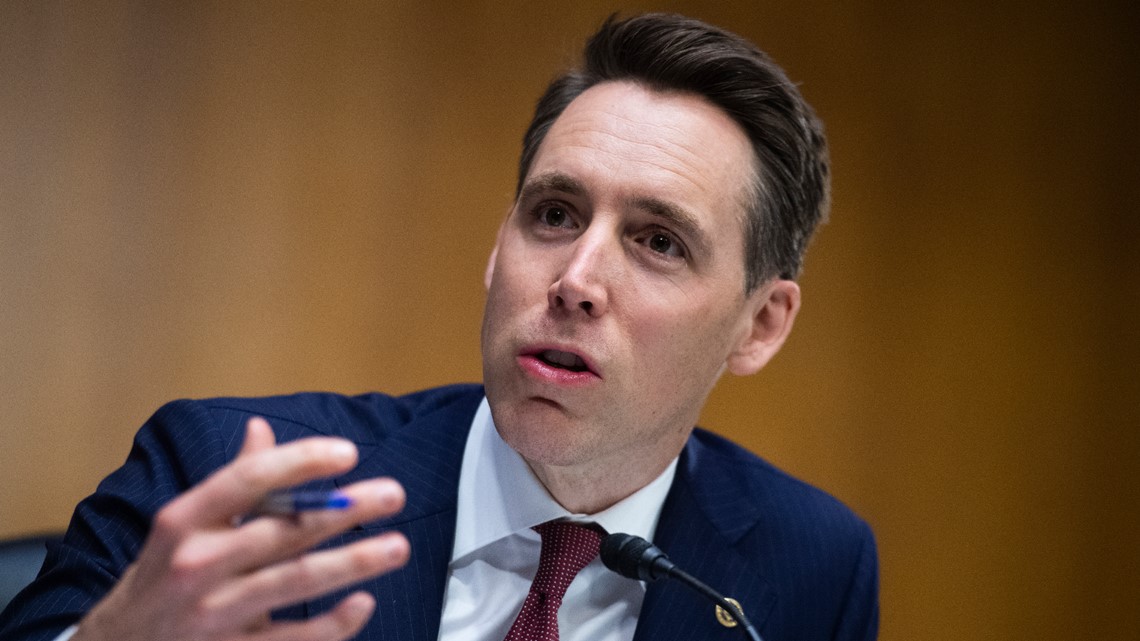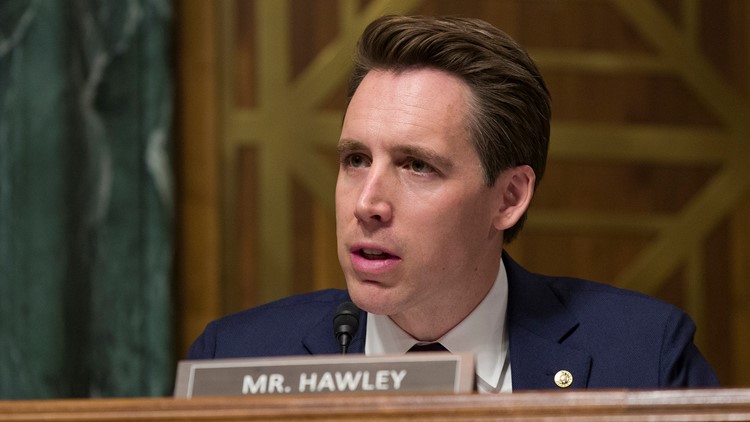Correction: An earlier version of this story included a photo that incorrectly identified Sen. Ben Sasse as Sen. Josh Hawley.
Sen. Josh Hawley, R-Mo., says President Donald Trump should reject any coronavirus relief package from Congress that does not include another round of direct stimulus payments to Americans.
“I urged him to veto,” Hawley said he told the president during a recent phone call.
Hawley told Politico that he felt the president was receptive to his argument, but White House economic adviser Larry Kudlow said Monday that Trump is comfortable with a $900 billion plan that does not include direct payments sought by Trump before the election.
The CARES Act passed in March sent $1,200 checks to most Americans with an additional $500 for each qualifying dependent child.
As recently as Sunday, lawmakers closed in on a proposed $908 billion COVID-19 relief bill that would provide roughly $300 in extra federal weekly unemployment benefits but not another round of $1,200 in direct payments to most Americans, leaving that issue for President-elect Joe Biden to wrestle over with a new Congress next year.
The cash payments were popular when they were first distributed after the pandemic hit, and Biden on Friday had expressed hope that a second wave might come after weekend negotiations.
Disagreements flared Monday over one key provision — a proposed liability shield from COVID-19-related lawsuits for businesses, schools and organizations that reopen.
There are two sets of talks on COVID-19 relief — on the leadership level and by a group of Senate moderates — occurring at the same time, and it's unclear how the negotiators might sort themselves out, lending an air of confusion to the process.
The bipartisan Senate group was set to meet again Monday evening. But a long weekend of talks pushed senators apart on one difficult negotiation, the proposed liability protection that has been a priority of Senate Majority Leader Mitch McConnell.
“We have seen some hopeful signs of engagement from our Democratic colleagues, but we have no reason to think the underlying disagreements about policy are going to evaporate overnight,” McConnell said Monday.
Republicans initially proposed a sweeping five-year liability shield, retroactive to December 2019, to protect companies and organizations from COVID-19-related lawsuits. Democrats, along with their allies in labor and civil rights groups, roundly dismissed that approach as a danger to workers.
Sen. Elizabeth Warren, D-Mass., said she wants to make sure “we’re not sacrificing the rights of people who have been made sick or killed by their employers with a pro-corporate liability release.”
Lawmakers heard from a coalition of 142 labor and civil rights groups urging them to resist granting companies liability for COVID claims.
“Any type of immunity would directly harm Black, Latino, and other workers of color who are overrepresented in ‘essential’ and in-person, reopened jobs,” the coalition wrote in a letter to Congress.
Negotiators suggested a scaled-back liability shield, but a six-month proposal was panned by Republicans and there is no agreement yet from Democrats. The powerful AFL-CIO said Monday it opposes even a short-term liability provision.
It's clear that McConnell's Republican majority is demanding the liability protection in exchange for the Democrats' push for additional money for states and cities battling the COVID-19 crisis.
“The leader had made clear that state and local money is tied to liability protection, so there’s either going to be none for both of those or both of those are going to be provided for," Sen. John Cornyn, R-Texas, told reporters. "My hope is we’ll do both.”
Sen. Bernie Sanders, I-Vt., said last week he would need to see Americans get direct payments for his support.





